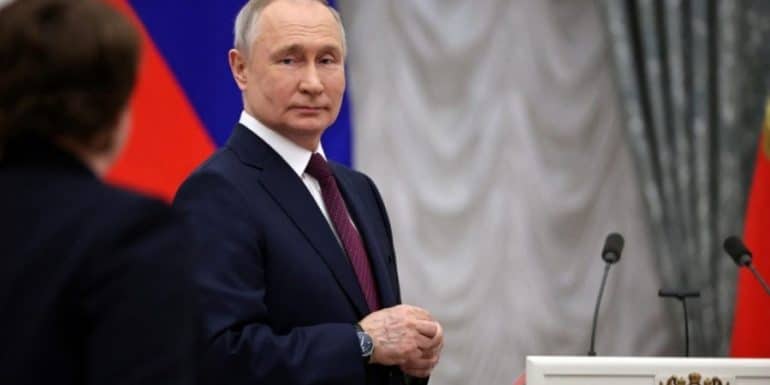A few days ago, the arrest warrant against the Russian President Putin was issued by the International Criminal Court. Mesimeri and Kati hosted the Professor of International Law, Aris Konstantinidis, who explained how the warrant can be executed, while citing the example of the former President of Sudan who had the same arrest warrant issued against him but continued to travel.
He initially said Putin could be arrested if he travels to one of the 123 countries that have accepted the jurisdiction of the International Criminal Court or leaves power or is overthrown and Russia's next government wants to extradite him. "In these two cases he could be arrested because there is the legal basis which is the arrest warrant."
He added that in case of an official trip to one of the 123 states then they are obliged to execute the arrest warrant. "If they don't do it they will violate an international obligation they have from the Treaty of Rome." He clarified that it has been done in the past. "About 10 years ago, a similar arrest warrant was issued for the former President of Sudan Al-Bashir, who had traveled to several African states while some were parties to the International Criminal Court and was not arrested, resulting in a division in the community. of international law because he was an active President of a state". He added that there is also the rule of immunity of heads of state from the jurisdiction of the courts, a rule which does not apply to the statute of the Criminal Court.
He noted that Putin cannot be prosecuted for the crime of attack because Ukraine is not a party to the International Criminal Court's statute. "However, Ukraine has asked the Criminal Court to conduct an investigation on its territory, and this request has been supported by other states, including the Republic of Cyprus and Greece," he said.
He stressed that his arrest is being sought for a war crime involving the forced transfer of children from one ethnic group to another. "Thousands of children have indeed been transported and this has been documented from orphanages and children's institutions in Ukraine. Putin, by signing a decree, accelerated the Russian citizenship of these children so that it would be easier for them to be adopted by Russian families, which has been done." He pointed out that for this particular criminal act there is enough evidence to issue an arrest warrant. "For other crimes in Ukraine it must be proven that Putin gave orders and that they are not acts of soldiers."
Mr. Konstantinidis stated that the court cannot judge in absentia. "If Putin is not arrested, he will not be able to stand trial. He will have to somehow object to the process and that will mean he accepts the court's jurisdiction. The warrant will remain in effect until he is arrested or processed."
He also said that 70 states have not accepted the jurisdiction of the Criminal Court. "It's the US, Israel, Turkey, China and many of Russia's neighboring states." He added that "I would predict that in the next period he will travel to one of these states to undermine the process."
Finally, he said that it makes the process of finding a peaceful solution to the Ukrainian issue even more difficult in the sense that one more parameter is set in the discussions between them.
